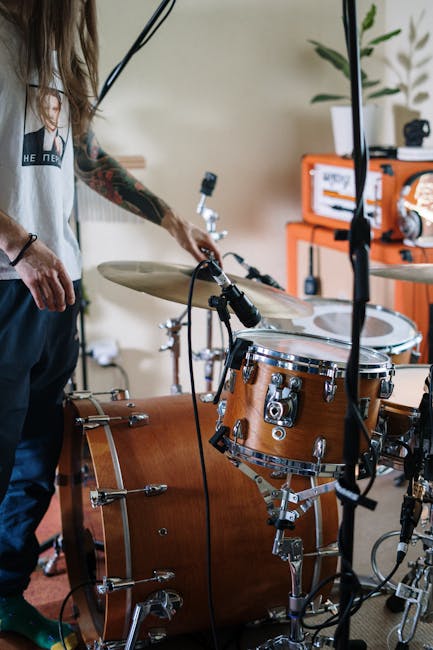 Creating the Perfect Sound Environment: A Guide to Using a Drum Sound Shield
Creating the Perfect Sound Environment: A Guide to Using a Drum Sound Shield
Do you love playing the drums but find that the sound can be overwhelming at times? Whether you’re rehearsing in a small space or trying to record your music, dealing with loud drum sounds can be a challenge. That’s where a drum sound shield can come in handy. In this article, we’ll explore how you can use a drum sound shield to improve your sound quality and create a more controlled environment for your drumming sessions.
Understanding the Importance of a Drum Sound Shield
A drum sound shield, also known as a drum shield or drum booth, is a device designed to help reduce the volume of drum sounds and control the acoustics in a room. It consists of panels made from materials like Plexiglas or acrylic that can be arranged around the drum set to block sound waves from traveling in all directions. By using a drum sound shield, you can minimize unwanted noise leakage and create a more focused sound for your drums.
Setting Up Your Drum Sound Shield
Setting up a drum sound shield is a simple and straightforward process. Start by placing the panels around your drum set, making sure to position them in a way that maximizes sound absorption and containment. You can experiment with different configurations to find the setup that works best for your specific needs. Some drum sound shields come with adjustable panels that can be moved to control the direction of sound waves, giving you even more flexibility in creating your desired sound environment.
Benefits of Using a Drum Sound Shield
There are several benefits to using a drum sound shield in your practice or recording sessions. One of the main advantages is that it helps reduce the overall volume of your drum set, making it easier to control the sound levels and prevent noise from disturbing others. This can be especially useful when rehearsing in a small space or recording music in a home studio.
In addition to controlling volume, a drum sound shield can also improve the acoustics of your drumming environment. By containing sound waves within the shield, you can create a more focused sound that is free from unwanted echoes and reverberations. This can lead to a cleaner, more professional sound in your recordings or live performances.
Tips for Maximizing the Effectiveness of Your Drum Sound Shield
To get the most out of your drum sound shield, there are a few tips you can follow to ensure optimal performance. First, make sure to position the shield close to your drum set to maximize sound containment. The closer the shield is to the drums, the better it will be at blocking sound waves and reducing noise leakage.
Additionally, consider using sound-absorbing materials inside the shield to further enhance its effectiveness. Adding foam panels or acoustic blankets to the interior of the shield can help absorb sound waves and improve the overall sound quality of your drums. Experiment with different materials and placements to find the combination that works best for your specific needs.
Conclusion
In conclusion, a drum sound shield can be a valuable tool for drummers looking to control volume and improve sound quality in their practice or recording sessions. By understanding how a drum sound shield works and following some simple tips for setup and optimization, you can create a more controlled sound environment that enhances your drumming experience. Whether you’re rehearsing in a small space or recording your music at home, a drum sound shield can help you achieve the perfect sound for your drums.